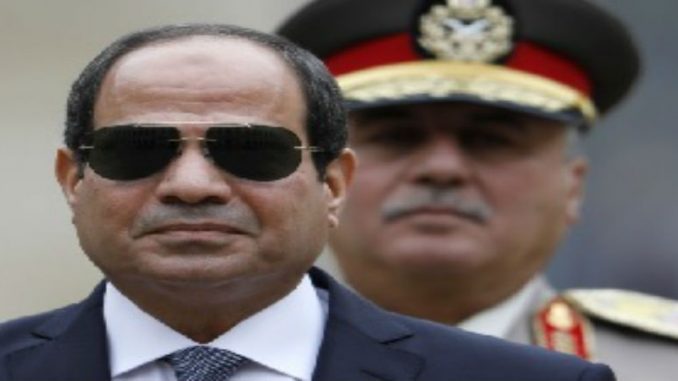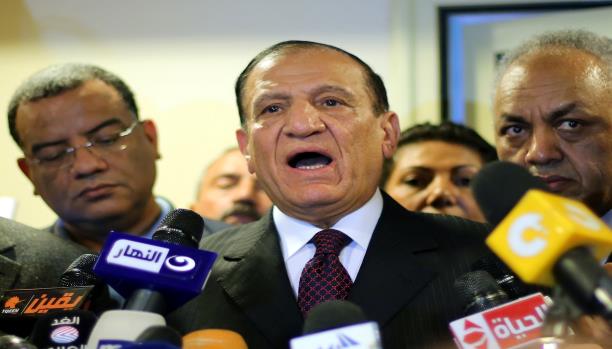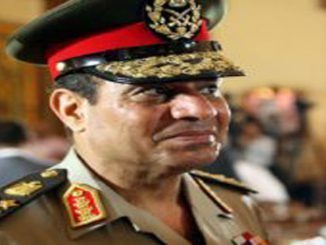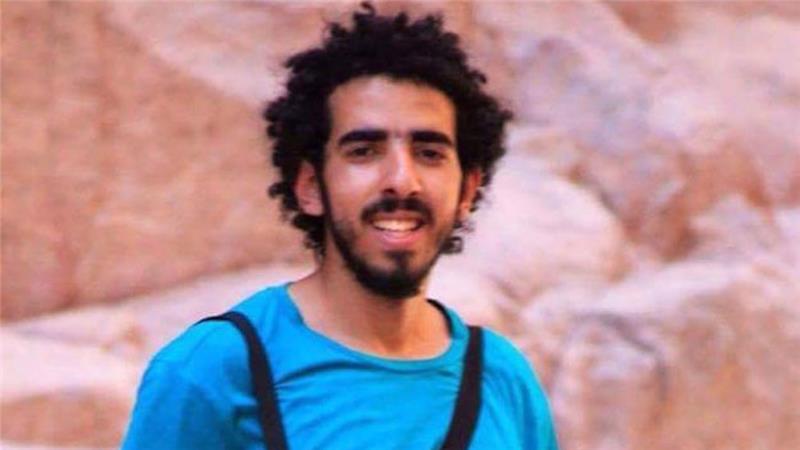
Egypt’s coup leader Abdel-Fattah el-Sisi is going to preside over the African Union for a year. Sisi was elected as term president last year after Rwanda’s president left his post. African Union term presidencies are given to the leader of a country every year through elections. Even though they do not have great authority, being elected as term president to the African has symbolic value.
The president of the African Union attends international meetings, gives speeches, and holds meetings. The speaker or the secretary general of the African Union has greater authority than the president and has first degree authority to make decisions.
It is difficult to understand why African leaders are not disturbed by Sisi taking up the job in 2019. When he carried out the military coup in Egypt, the African Union was one of the first institutes to react, and had suspended Egypt’s membership. There is no reaction from the Republic of South Africa either, which is considered the big brother of African states. Similar to Turkey, South Africa also showed a strong reaction toward Sisi’s coup and the murders he committed afterward. The South African government suspended all ties and called back its ambassador in Cairo.
Sisi was the one who personally carried out a coup against Mohamed Morsi, who came to power with the people’s vote, as a result of democratic elections, for the first time in Egypt. As if this was not enough, he threw Morsi into the dungeons, and slaughtered 987 innocent people who were conducting a peaceful demonstration against the coup.
At the time Sisi was elected state president, there was a vote process in Egypt similar to that in the Hosni Mubarak era, but this should not be considered legitimate. Innocent people continue to be sentenced to death or spend their lives condemned to life in Sisi’s dungeons.
The current state in Egypt is no different to that of the Mubarak era; freedoms are limited, democracy has been shelved, and Muslims are otherized and seen as enemies. Egypt’s latest pharaoh does not hesitate to cooperate with the United Arab Emirates (UAE), Saudi Arabia, or even Israel against Turkey.
Sisi allows Israel to use its air space and overlooks their slaughter of innocent Palestinians. By closing off the sole border gate through which Palestinians can breathe, it is cutting of their ties with the world.
African states emerged as independent states after fighting many years against British, French, Portuguese, Italian, Dutch, and Belgian imperialism. Even though former Ghana President Kwame Nkrumah could not make his dream of a single African state come true, all African states achieved their independence and united under the umbrella of the African Union.
Freedom and independence are vital topics in African history. Yet, Sisi has shackled freedom, and has provided advantages to states like Israel to continue his independence and sovereignty. He has no right nor capacity to represent African countries.
Think about it, a coup attempt took place in Gabon recently. The African Union demonstrated a determined attitude and condemned the coup, and opposed the toppling of the elected government through coup d’état. Now, how can Sisi, who came to power through a coup, condemn anyone?
The previous term president, Paul Kagame, had a dream. He had aimed to end the problems between African countries and the conflicts between the aides, and to develop the continent in terms of education, health and economy. Post-1994 Rwanda could have been a model for African countries. Because Kagame had ended the civil war between the Tutsis and Hutus, formed a common Rwanda identity, and made significant achievements in education and health.
Is Sisi going to present the Egypt under his administration as a role model for African countries? Is Egypt, whose relations with Ethiopia and Sudan are constantly tense, which has not been able to achieve internal peace, which has filled the dungeons with those in opposition to Sisi, going to set an example?
In the past, when former Libya leader Muammar Gaddafi, and former Zimbabwean President Robert Mugabe were African Union term presidents, Western countries had objected. Because neither was considered as a democratic leader, and they were identified as dictators, even though both countries possess valuable oil and diamonds. Is Sisi any different to these leaders? As a matter of fact, has he not oppressed his people more than those leaders?
The primary problem that awaits Sisi is the election results in the Democratic Republic of Congo. Felix Tshisekedi and Martin Fayulu both claim to have won the elections. Even the Vatican intervened in the elections, and refuses Tshisekedi’s victory of 38.57 percent of the vote according to official results. It is likely that the elections in the Democratic Republic of Congo were not transparent, and a civil war may break out. Considering that even the elections that brought Sisi to power were not held in a transparent and just atmosphere, how can he call on the people of Congo? Is he going to ask the people to respect the non-transparent and unjust election results like in Egypt?
It would be no surprise if the number of military coups in Africa rose during Sisi’s term presidency. Because there is nothing other than an attack-like coup attempt that Sisi can offer to Africans. However, now, both coups and pro-coup leaders are a thing of the past for Africa; there is no room for leaders like Sisi in the rising Africa of the future.
It is very unlikely, but perhaps leading the organization may change Sisi. He might be affected by the discourse of freedom in meetings and free Egypt’s first democratically-elected president from prison – and if he is going to settle scores with Morsi, he will do it at the ballot box. But this is very unlikely; it would be wishful thinking to expect a transparent administration, and to expect freedom to win from a so-called leader who seized power through bloodshed and a military coup.
Perhaps after some time, the leaders of African countries will oppose Sisi’s term presidency and by giving him his first lesson, they will pave the way for him to resign. Who knows?
BY: İbrahim Tığlı. (The article was published by Yeni Shafak Turkish newspaper on 22 January 2019.)



